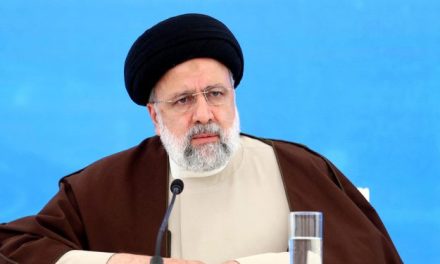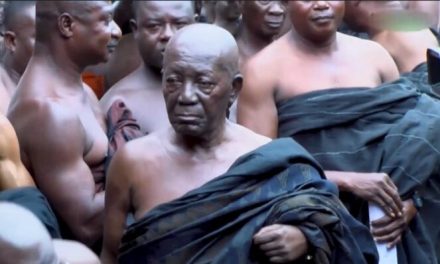
Intensify Slave Trade Reparation, Restitution Of Africa’s Cultural Properties Effort – Akufo-Addo To AHRM5 min read
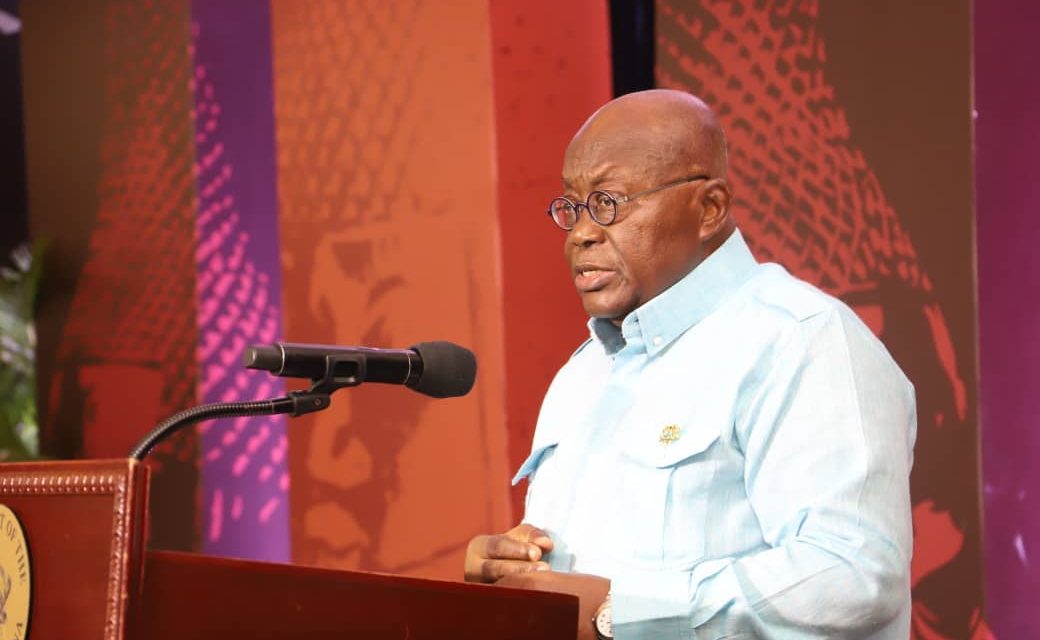
President Akufo-Addo has called on members of the Africa Heritage Restitution Movement (AHRM) who are promoters for the payment of reparations, to Africans for the damage caused by the Trans-Atlantic Slave Trade (TAST) and for stolen cultural properties to be returned to the continent by the West, to intensity their advocacy.
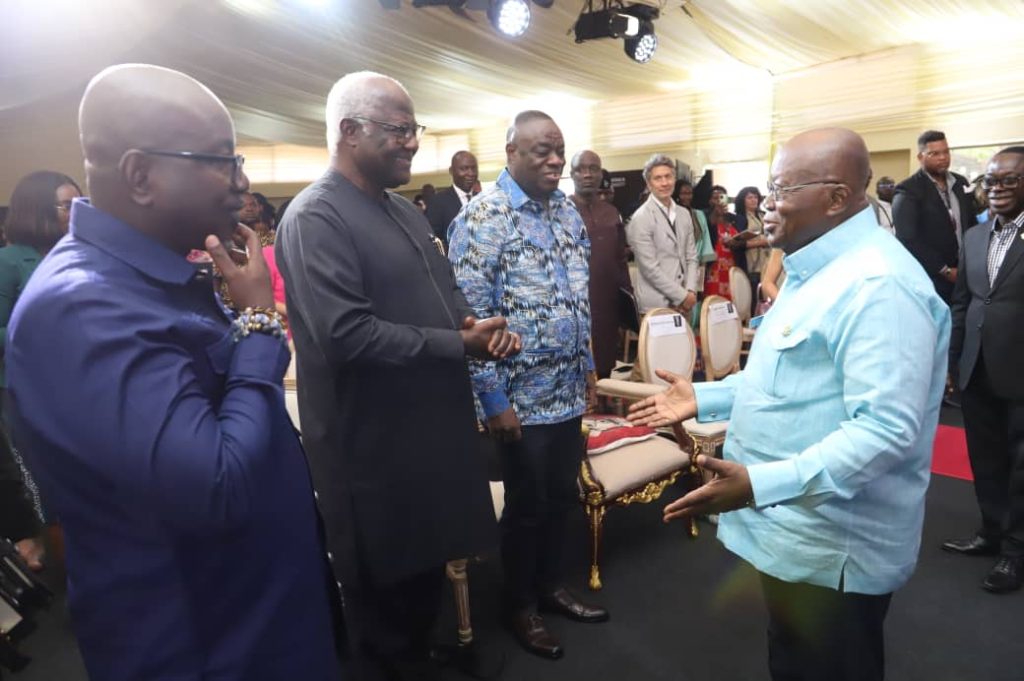
Addressing attendees of the first meeting of the Africa Heritage Restitution Movement (AHRM) organised by the Open Society Foundation (OSF) and held at the W.E.B. Du Bois centre in Accra today Tuesday (22 August 2023), under the theme; “African Heritage Restitution Movement,” which is calling for the return of African cultural materials, President Akufo-Addo said there is no better time than now for those who committed the Trans-Atlantic Slave Trade to pay reparations and to return all illegally acquired cultural properties.
“The subject of restitutions must go along with the matter offs reparations. No amount of money can restore the damage caused by the Trans-Atlantic Slave Trade and its consequences, which have spanned many centuries.
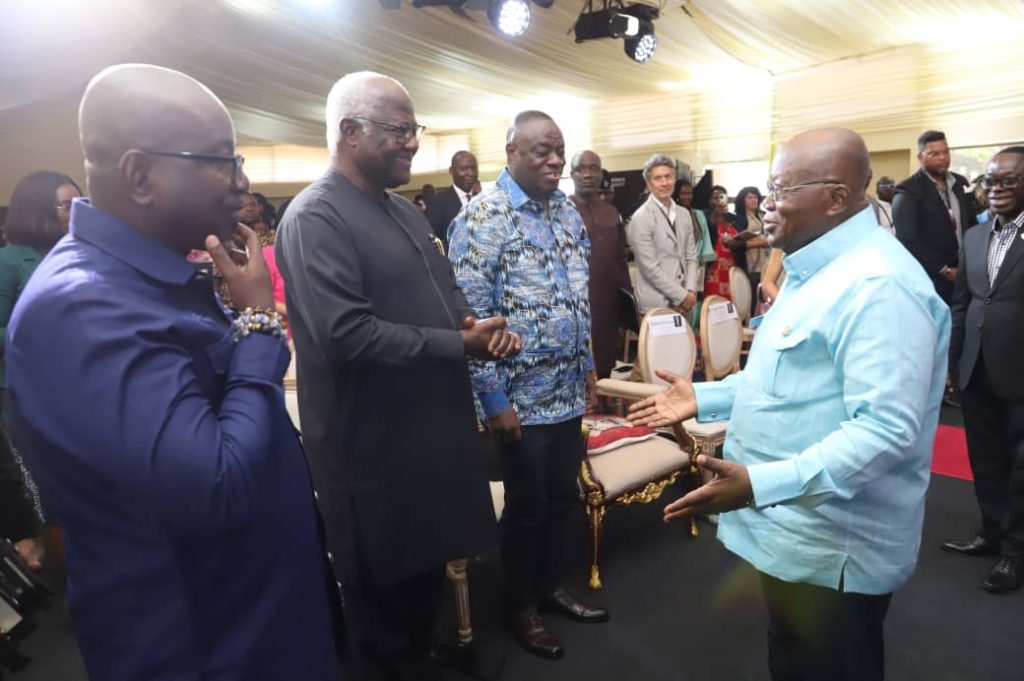
“But nevertheless, it is now time to revive and intensify the discussion for reparations for our Africa. Indeed, the time is long overdue. If reparations can rightfully be paid to victims of the holocaust so can reparation be paid to victims of the slave trade” President Akufo-Addo said.
“The restitution, return, reparation and repatriation of African stolen and looted African cultural properties under pre-colonial and colonial circumstances have to be issues of major concern to all Africans.
“These concerns have in recent times dominated public discourse on the continent. Governments, civil society groups, traditional authorities, scholars, and researchers have called for the return of African cultural properties that were illegally and shamelessly transported from the continent” President Akufo-Addo added.
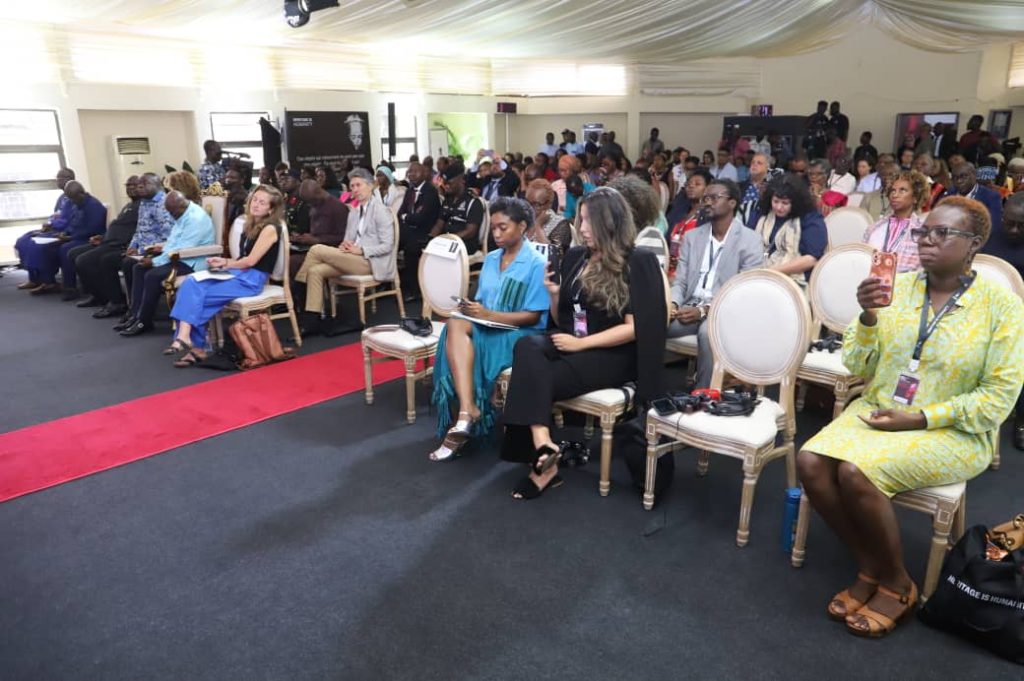
Full Support
The President further indicated that he supports “fully, the initiative for the return and reparation of African cultural properties to the continent as it will help Africans and in particular, the descendants of the communities, groups and individuals who created and produced these cultural properties to reconnect to their history, to their pioneers, to their knowledge ands their skills”.
“This reconnection of the past and the present will also help to build new relations with the international community, especially that of Europe, which was principally responsible for the original thefts of the cultural properties.
“Most of these cultural properties, when returned, will also offer Africans the opportunity to develop local knowledge of the technological, cultural, social and eustatic value of the objects” Akufo-Addo remarked.
Complex issue
President Akufo-Addo, in his address, observed that the subject of restitution of cultural properties was stolen mainly by Europeans and the call for the payment of reparations for the slave trade? can be complicated.
To this end, the President said his government has put in place a a body that is essentially expected to research into the subject matter and advise on best practices in the country’s efforts to secure the restitution of her cultural properties and the payment of reparations.
“Being mindful of the complexities of the repatriation and restitution process and the sensitivity of the holders, and potential recipients of illegally acquired properties, Ghana’s ministry of tourism, arts and culture has set-up a national focal team on restitution and repatriation to research and advise on international best practices and guidelines that will support the country in the restitution process” the President stated.
“The restitution of cultural properties is not without tension and contestation as it requires the establishment of true ownership and providence of the cultural properties to be returned and repatriated.
“To ensure that the restitution processes do not invoke undue contestation and tension, it is important for state and non-state institutions, activist groups, and local community leaders, work in partnership with their international counterparts based on mutual trust and respect. This will involve dialogue, negotiation and consensus building at all levels” Akufo-Addo added.
Restitution movement
In recent years, the long struggle for the restitution of African Heritage which started during colonization entered a new phase and in 2017, there was a resurgence of the movement which urged lawmakers, private collectors, and museums to expedite objects illicitly taken from the African continent during the colonial-period.
It is critical that at this moment, where there is a global pressure to repatriate African heritage, there is a global alliance of stakeholders that, through advocacy and negotiation, can see returns through.
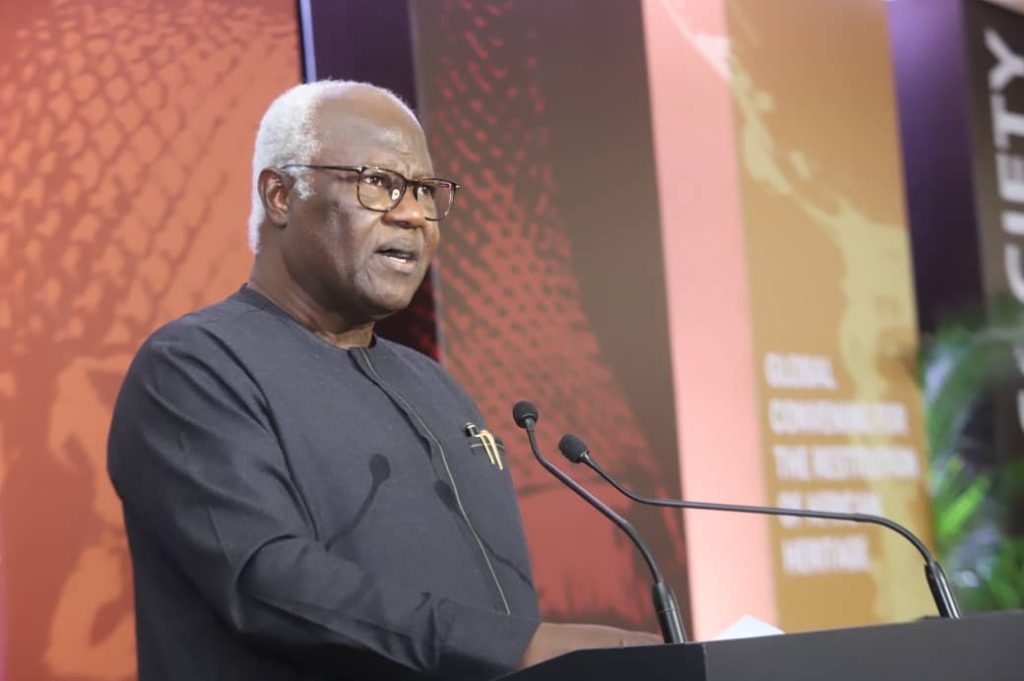
Against this backdrop, Open Society Foundations Global Initiative for the Restitution for African Cultural Heritage convening is focused on interrogating key questions to continue to advance and build a resilient and sustainable restitution movement.
The three-day summits taking place in Ghana, will feature opening and closing plenary sessions, interactive thematic sessions, performances, and networking opportunities for key stakeholders including, representatives from the African Union, ECOWAS, NGOs, UN agencies, artists, academia, creative communities, civil society and the African diaspora.
Open Society Foundations
The Open Society Foundations, founded by George Soros, are the world’s largest private funder of independent groups working for justice, democratic governance, and human rights.
OSF approaches this mission through the illuminating principles of justice, equity, and expression—defining characteristics of any truly open society.
The Open Society Foundations champions the search for bold, democratic solutions to our urgent, common challenges that advance justice, equity, and human dignity.
The foundation does this by supporting a wide array of independent voices and organizations around the world that provide a creative and dynamic link between the governing and the governed.
OSF seeks to counter the narrow pursuit of political self-interest and short-term opportunism—in pursuit of a sustainable future for people and the planet that leaves no one behind.
From Wilberforce Asare





